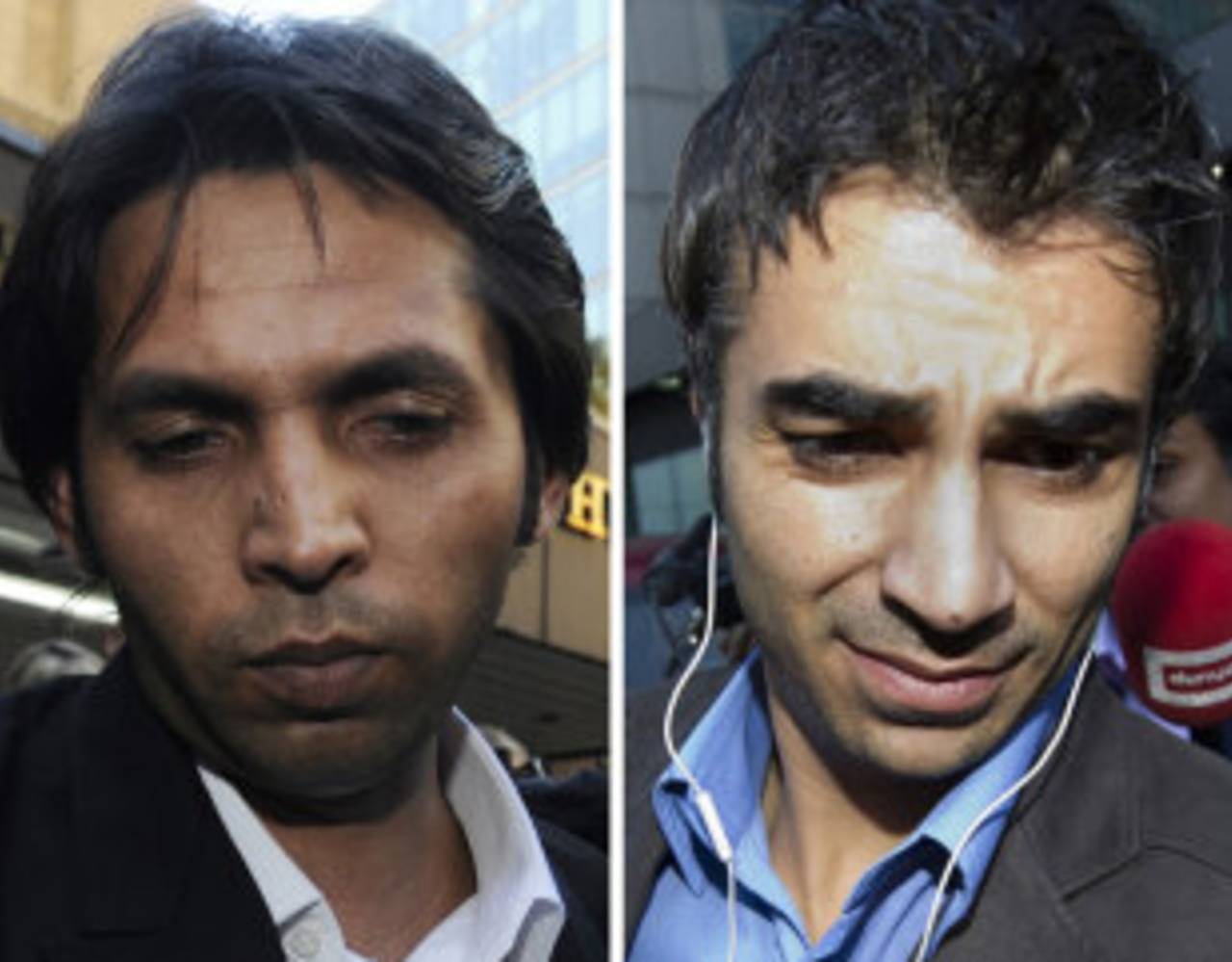It's time cricket got tough with the crooks
Show zero tolerance and impose life bans on any cricketer or official who is involved in fixing matches
Ian Chappell
06-Nov-2011

How can those in the administration in charge of protecting the game from fixers believe that players control when a fix occurs? • AFP
It's time to cut through all the crap surrounding cricket's fixing problem. Sure, the jailing of three Pakistan players and a fixer sends a strong message to other players about what might happen to them if they decide to take a walk on the dark side. But what about all the questions left unanswered?
The ICC's Anti-Corruption and Security Unit (ACSU) has had little to do with the capture of any of cricket's major conspirators. This is a concern since there's enough information out there for more players to at least have had their cages rattled.
I had a conversation with an ACSU man that left me wondering if they really understand the type of people who are behind this dirty business. He expressed surprise when it was alleged that bookies were aware of certain scoring patterns during the Oval ODI between England and Pakistan last year. He couldn't believe a fix could have been arranged so soon after the newspaper sting on the Lord's Test had become public knowledge.
The fact that he thought the players who had been compromised had some say in when the fix went down left me incredulous. If he didn't understand that it's the crooks who make the demands once they have got their hooks into a player, it's not surprising the ACSU doesn't catch more cricketers.
The troublemakers at the top are serious crooks with no morals or compunction about the harm they cause, and certainly no feelings for the game.
And if anyone thinks Bob Woolmer's death wasn't slightly suspicious and that Pakistan players are the only ones involved in this racket, I have a rewarding Nigerian investment opportunity you'd be interested in.
Ronnie Flanagan, the head of the ACSU, said, "The ICC is the enemy of any corrupt cricketer." That statement would be more credible if there weren't so many ex-players with high-profile jobs in the game who have either been adversely named in reports on match-fixing or were members of a team captained by a match-fixer.
The administrators would also gain credibility if there was a life ban in place for every player involved in fixing. That's it - fixing is fixing in any form - get involved and get caught in the dirty business and your career in the cricket is over for life.
The fact that players like Marlon Samuels are allowed back into the game after being suspended doesn't imply zero tolerance. The game needs to be more proactive in unsettling suspect players or officials. A few well-placed threats to these players might produce some interesting results, or, at the very least, a nervy reaction.
Flanagan's statement would also have more meaning if the ICC hadn't moved its headquarters to Dubai in 2004, shortly after international matches were put on hold in Sharjah once the match-fixing scandal first broke out in 2000. Some questionable games might have been played in Sharjah, but the dirty money was coming from Dubai.
There's no doubt the jail sentences for the three Pakistan players has sent a warning to all cricketers and officials. But what about cricket sending out an equally strong message to the crooks? So far cricket, with its fragmented international administration, hasn't done much to frighten off the crooks.
The game needs to come up with a cricket-related method to end the career of any suspect rather than trying to do it solely through the courts. The chances of finding a suspect cricketer guilty in a court of law are slim. However, any suspicious behaviour by a player should first bring a warning from the authorities, and any repeat performance ought to result in his removal from the game.
There was one text that appeared among the evidence during the London court case. It said: "Let's do it, let's get hold of f...ing cricket and squeeze everything we can from it." That should alert the cricket officials to the life-or-death struggle they are involved in, and that's how they should approach any solutions to this game-threatening problem.
Former Australia captain Ian Chappell is now a cricket commentator and columnist